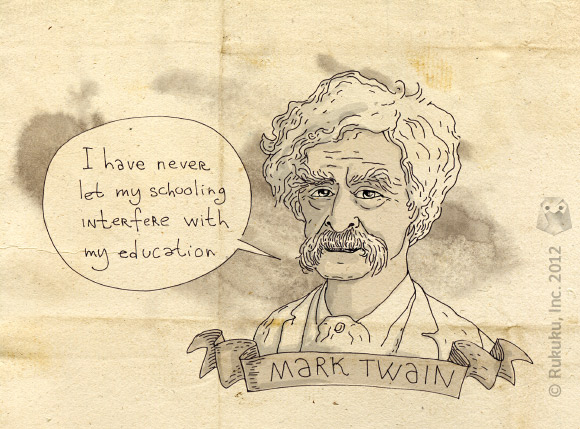How can online learning help to fill the inspiration gap left by our declining education system?
Motivating students to pursue topics that interest them. Shocking fact of the day: students learn much better when they’re interested and engaged. Online education allows individualized learning and experimentation in a way that traditional learning cannot. That means students have the ability to learn what they want to learn. Sure, sometimes you have to learn things that you don’t like – and that’s where the online model offers more advantages…
Providing access to passionate, inspiring teachers. Given that a good online learning system is theoretically able to cast a worldwide net in terms of attracting talent, students benefit from the ability to interact with the best professionals in their desired field. Passionate teachers inspire passion in students.
Creating a structure where grades and examinations are secondary to real learning. At Rukuku, we believe that grades and exams shouldn’t be a purpose in and of themselves. When one takes his own initiative rather than being nudged (read: forced) to take a class for a grade, actual learning becomes the priority.
Another bonus of online learning: none of those inspiration-killing standardized tests!





